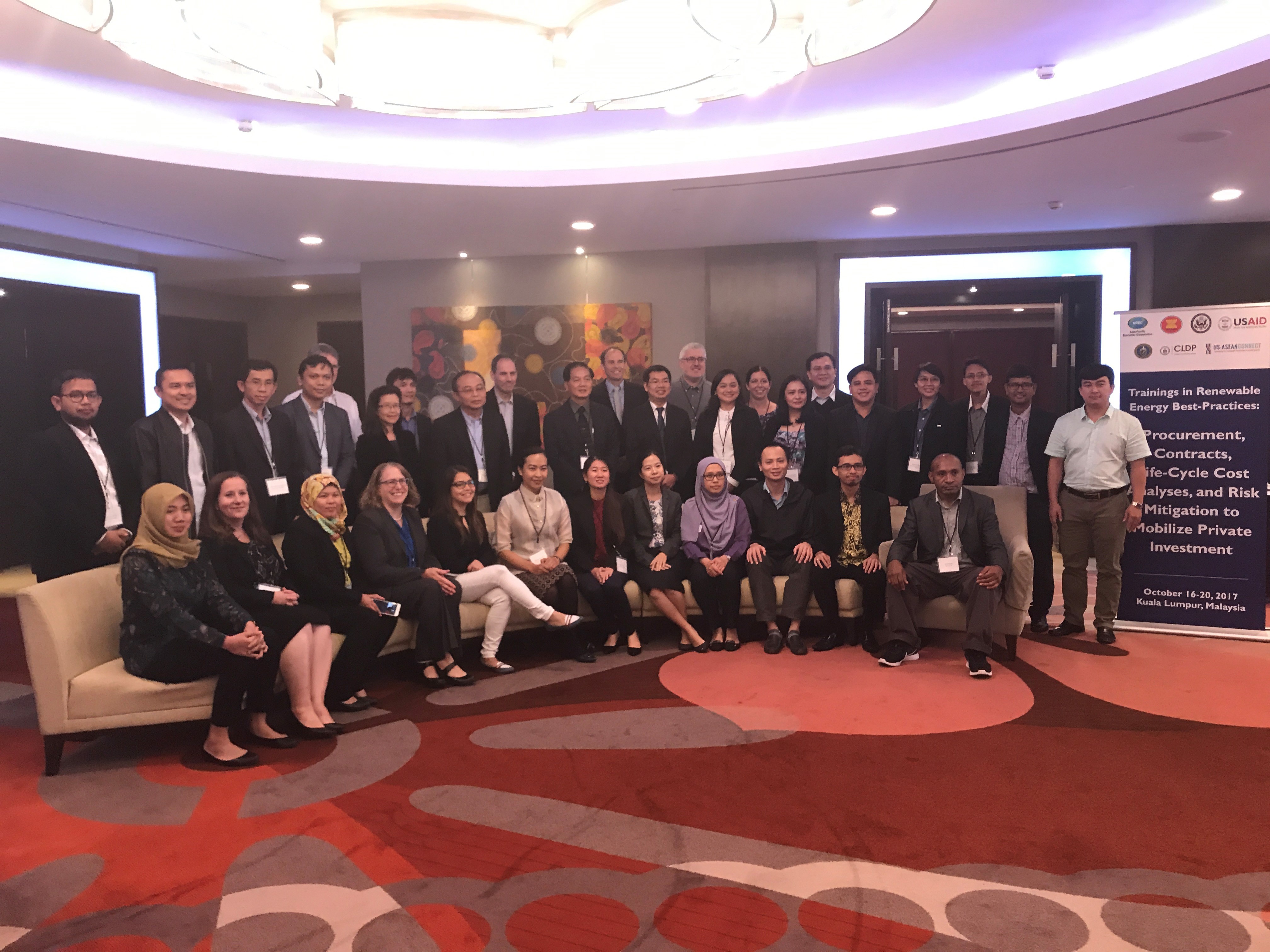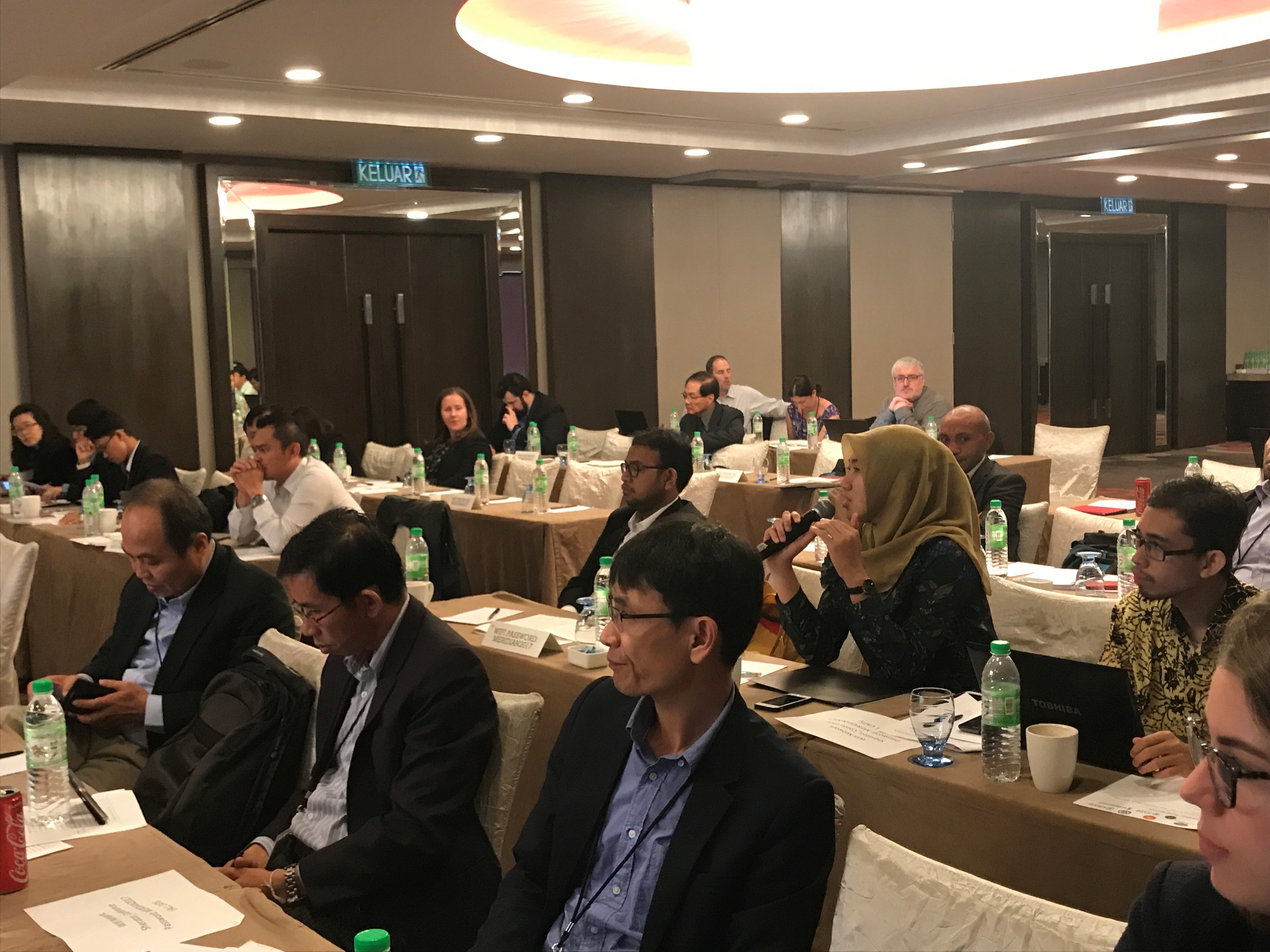Menu

The Training in Renewable Energy Best-Practices: Procurement, Contracts, Life-Cycle Cost Analyses, and Risk Mitigation to Mobilise Private Investment Workshop has been conducted in Kuala Lumpur, Malaysia on 16 – 20 October 2017. The event was supported by Asia-Pacific Economic Cooperation (APEC), ASEAN Secretariat, U. S Department of State, United States Agency for International Development (USAID), U. S Department of Energy, Commercial Law Development Program (CLDP) of USA and US-ASEAN Connect.
The event was attended by governments and electricity utilities from both ASEAN and APEC economies. The five-day training was divided into two themes. The first three days was conducted from 16-18 October with the theme “Procuring Renewable Power Generation”. The initial three days gave participants an in-depth knowledge of contractual mechanisms to mitigate risks of privately developed renewable energy (RE) projects. By using real case studies such as the Renewable Energy Independent Power Producer Procurement Programme (REIPPPP) in South Africa and transactional documents samples from the programme, this workshop enabled participants to a) create competitive tenders for Request for Proposals (RfPs), b) evaluate solicitations using a best-value approach, and c) draft key terms in power purchase agreement (PPAs) that drive project financing. Participants from APEC economies could learn best practices from each other through an active sharing session. This information sharing was valuable since the region may face similar challenges due to comparable characteristics in the economy and demography. As each country has its own RE scheme and progress, the common challenges experienced by most of the participating countries are the absence of clear RE regulatory framework and financial scheme as well as clear procedures for PPA in supporting RE market in the region.
 Credit: Nathan Associates Inc.
Credit: Nathan Associates Inc.
The last two days, held from 19-20 October, discussed “Making the Case for Clean Energy Investment with Life-cycle Impact Assessment”. During the last two days, the workshop provided a) capacity-building on considering health and environmental benefits of specific RE technologies across the life cycle of an investment, b) tools and data sets for estimating the extent and cost of such benefits, c) strategies for applying impact assessments to assist APEC and ASEAN member economies in evaluating the full costs of individual energy projects. The information shared was valuable given the introduction of specific tools for the governments and utility companies in formulating RE policy and identifying each technology’s benefit and impact to the society. (MS/PA/NS. Featured photo credit: Nathan Associates Inc.)
